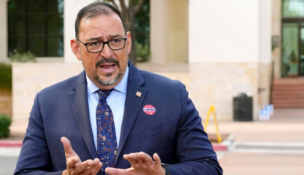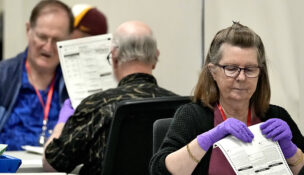Top GOP lawmakers forming campaign committees separate from state party
Arizona Capitol Reports Staff//May 22, 2009//[read_meter]
Top GOP lawmakers forming campaign committees separate from state party
Arizona Capitol Reports Staff//May 22, 2009//[read_meter]
Top Republican leaders in the House and Senate have created independent campaign committees aimed at electing Republican lawmakers and raising money outside the state Republican Party structure.House Speaker Kirk Adams...
No tags for this post.

















